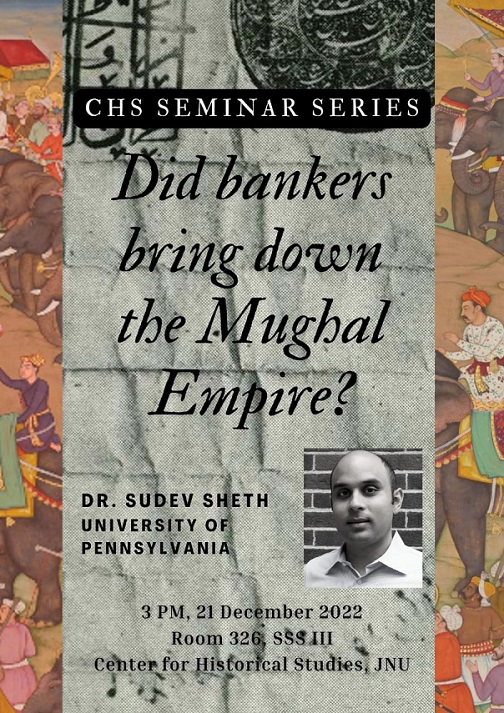
Abstract:
By the 1660s, the mighty Mughal Empire controlled the Indian subcontinent and impressed the world with its strength and opulence. Take for example the Frenchman François Bernier, who eagerly wrote to the court of Louis XIV to convey how “the Great Mughal Emperor keeps 3,000 fine horses, 900 elephants, and porters intended to carry numerous tents, wives, women, furniture...and sweet essences greater than can be conceived.” For Bernier, and indeed many others, the Mughal Empire was a place of opportunity and excess. Yet hardly two decades would pass before fortunes would turn, Mughal emperors and governors losing influence to rival warlords from the Deccan and foreign powers including the British East India Company. Drawing on local evidence in multiple languages, this talk shares the history of a prominent financier family involved in Mughal politics and explores whether local Hindu and Jain bankers were powerful enough to precipitate the collapse of the Mughal state.